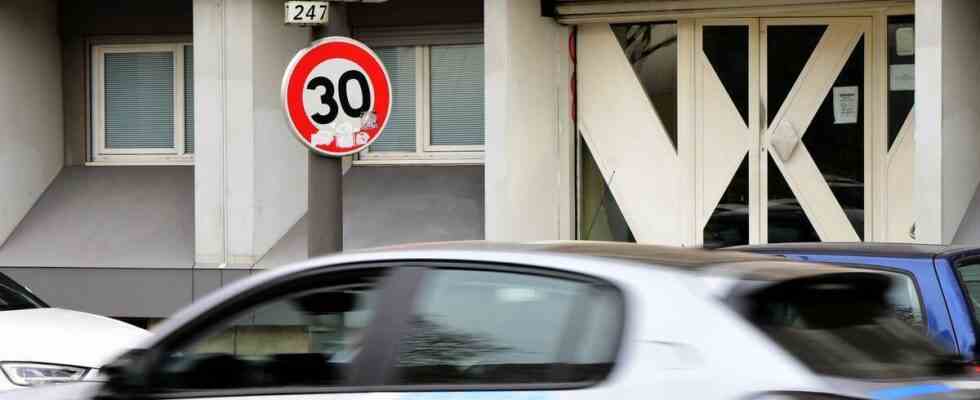By reducing the maximum speed to 30 km/h in the city center on March 30, the ecological municipality of Lyon also hoped to reduce accidents and pollution. Two months after the implementation of this measure, the exasperation of motorists is visible, as shown by your feedback, in a call for testimonials launched by 20 minutes.
Some are reassured, like Benjamin, 45, for whom “this measure is effective: I have systematically reduced my speed and I am less anxious at the idea of knocking over a pedestrian, a cyclist or a person on a scooter. Plus, I save fuel,” he says. Sha, 43, also finds that “driving slower is less stressful because there is less difference in speed between road users, and less noise”.
A good or bad adaptation
If the measure did not bother Pascal, 67, it is because “in the center of Lyon you cannot drive faster…” He finds that “traffic is more and more intense, the presence of bicycles and electric scooters on sidewalks and crosswalks are far more dangerous.”
Aurélien, 32, adapts as best he can: “For my part, I drive at 40 to avoid an excessively high fine in the event of a check on the main roads and I try to respect the 30 km / h as best as possible on the most minor axes. While noting that “in any case, the limitation is absolutely not respected on the main roads, and only further annoys drivers who have already been fed up for a few years. »
Difficult to set up
Indeed, driving at 30 km/h puts the nerves of Jérôme, 58, to the test: “I don’t spend my time glued to the speedometer, especially since the bikes require increased attention. And I don’t respect the 30 when I’m in heavy traffic areas where fluidity is expected. »
For Aurélien, 34, these 30 km/h are “problematic, with electric scooters and bicycles which sometimes travel at the same speed, all the more so when overtaking on the right. We end up with dangerous situations, not to mention the loss of attention with the monotony and nervousness that it generates”. “Take the banks of the Saône and you can’t stop juggling between 30 and 50 km/h”, remarks Pascal, 62 years old: “The engines suffer and we surely pollute more than at 50! »
Driving slower would pollute more
Gaël, 36, is a driving and road safety teacher. For him, this lowering of the speed is “useless: with the congestion we were not going any faster”. He underlines “inconsistencies not possible” and “a polluting and expensive overconsumption”. Monder, 29, also finds this measure “counter-productive: “I am either at the bottom of 2nd gear or at the start of 3rd gear, I mistreat my engine and cause more noise when I stay without changing gear, and therefore cause more pollution. »
Finally, for Jean-Marc, 74, “it is not by slowing down cars, by reducing circulation spaces and parking spaces that the air situation will improve without increasing public metro services” .
The problem of traffic in the city remains unchanged: “Respecting the 30th myself, I am overtaken, sometimes in a dangerous way, stuck or honked”, admits Emmanuel, 49 years old: “More than the speed limit, it is the control of compliance with the Highway Code which should have been improved. »

